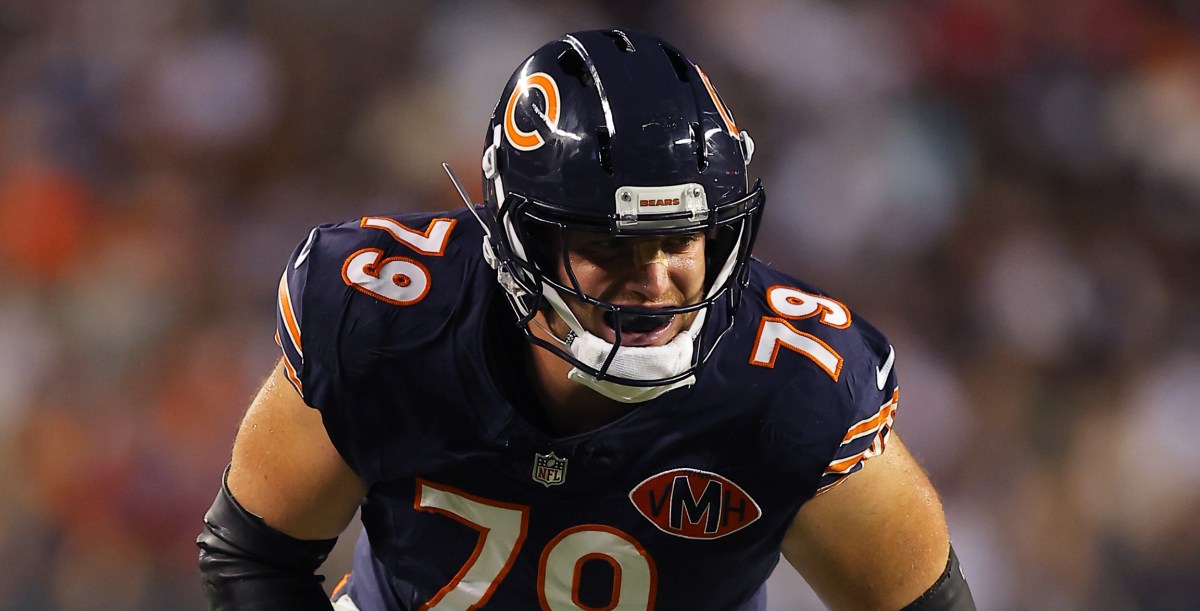
Should the Bears play Theo Benedet or Ozzy Trapilo if Wright can’t play?
Thursday’s injury report for the Chicago Bears brought some bad news for right tackle Darnell Wright, as he was listed as questionable for the upcoming game. The news sent shockwaves through the team and its fan base, as Wright has been a key player on the offensive line this season.
Wright, a veteran player who has been with the Bears for several years, has been a reliable and consistent performer on the field. His absence would be a significant blow to the team’s offensive line, which has already been struggling with injuries and inconsistency this season. Wright’s leadership and experience have been crucial in helping to anchor the line and protect the team’s quarterback.
The injury report did not specify the nature or severity of Wright’s injury, leaving fans and analysts speculating about the potential impact on the team. Some feared that Wright could be out for an extended period, while others hoped that he would be able to recover in time for the next game.
As the news of Wright’s injury spread, the team’s coaching staff and medical team went into overdrive to assess the situation and determine the best course of action. They conducted tests and evaluations to determine the extent of Wright’s injury and to develop a treatment plan to help him recover as quickly as possible.
In the meantime, Wright’s teammates rallied around him, offering words of encouragement and support as he faced the uncertainty of his injury. They knew how important he was to the team’s success and were determined to do whatever it took to help him get back on the field.
For Wright, the news of his injury was a devastating blow. He had worked hard all season to stay healthy and perform at a high level, and now he faced the possibility of missing crucial games at a critical point in the season. The uncertainty of his injury weighed heavily on him as he awaited further information from the team’s medical staff.
As he underwent treatment and rehabilitation for his injury, Wright remained focused on his recovery and on doing everything he could to get back on the field as soon as possible. He spent hours in the training room, working with the team’s trainers and physical therapists to strengthen his injured body part and to regain his mobility and flexibility.
Despite his efforts, the team ultimately decided to hold Wright out of the next game, citing concerns about his ability to perform at a high level and to protect himself from further injury. It was a difficult decision for Wright to accept, but he knew that the team had his best interests at heart and that they were looking out for his long-term health and well-being.
As Wright watched his teammates take the field without him, he felt a mix of emotions. He was proud of their performance and their resilience in the face of adversity, but he also felt a deep sense of frustration and disappointment at not being able to contribute to their success. He knew that he had to stay positive and focused on his recovery, but it was hard not to feel a sense of loss at being sidelined during such a critical stretch of the season.
In the weeks that followed, Wright continued to work diligently on his recovery, making progress each day and slowly regaining his strength and mobility. He attended team meetings and practices, offering support and guidance to his teammates as they prepared for each game. He remained an active presence in the locker room, providing leadership and encouragement to his fellow players.
Finally, after several weeks of rehabilitation, Wright was cleared to return to practice and to participate in team drills. The news was met with excitement and relief by his teammates and coaches, who knew how important he was to the team’s success. Wright was eager to get back on the field and to make a positive impact in the upcoming game.
As he took the field for the first time since his injury, Wright felt a mix of emotions. He was grateful for the opportunity to play again and to contribute to his team’s success, but he also felt a sense of nervousness and apprehension as he tested his injured body part in live game action. He knew that he had to trust in his training and in his teammates to protect him and to support him as he returned to competition.
In the game that followed, Wright played with determination and focus, showing no signs of hesitation or fear as he battled against the opposing defense. His performance was solid and steady, as he helped to anchor the offensive line and to protect the team’s quarterback from pressure. His teammates rallied around him, offering words of encouragement and support as he battled through the challenges of his injury.
As the game came to a close, the Bears emerged victorious, thanks in part to Wright’s strong play and leadership on the field. His return to action had been a success, both for him personally and for the team as a whole. The injury that had once threatened to sideline him indefinitely had been overcome, and Wright had proven that he was a resilient and determined player who would not be kept down for long.
In the days and weeks that followed, Wright continued to play at a high level, helping to lead the Bears to several key victories and to solidify their position in the playoff race. His injury had been a setback, but it had also been a valuable learning experience, teaching him the importance of perseverance and determination in the face of adversity.
As the season drew to a close, Wright reflected on his injury and on the challenges he had faced in overcoming it. He knew that he had grown stronger and more resilient as a result of the experience, and that he had developed a deeper appreciation for the game and for the opportunity to compete at the highest level. He was grateful for the support of his teammates and coaches, who had stood by him through his injury and had helped him to return to form.
In the end, Wright’s injury had been a test of his character and his resolve, and he had passed with flying colors. He had proven himself to be a valuable and reliable player for the Bears, a leader on and off the field, and a role model for his teammates. His journey from injury to recovery had been a challenging one, but it had also been a rewarding one, filled with lessons and growth that would stay with him for the rest of his career.
As Wright looked ahead to the next season, he knew that he would face new challenges and obstacles, but he also knew that he had the strength and determination to overcome them. His injury had been a setback, but it had also been a stepping stone to greater success and accomplishment. He was ready to face whatever the future held, confident in his abilities and in the support of his teammates and coaches. And as he stepped onto the field for the first game of the new season, he did so with a renewed sense of purpose and determination, knowing that he had overcome one of the toughest challenges of his career and emerged stronger and more resilient than ever.
Source: Windy City Gridiron
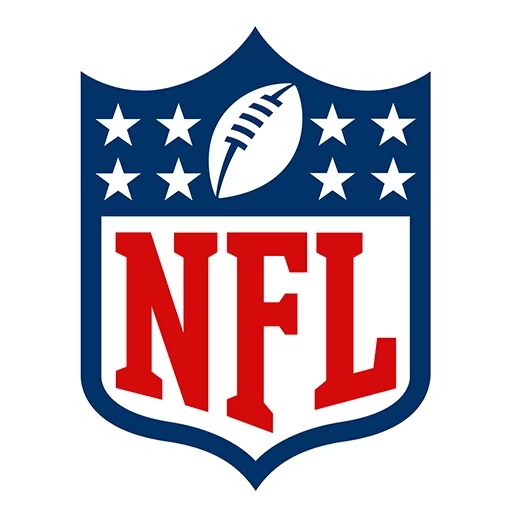

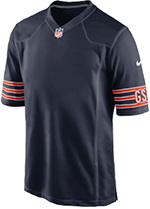




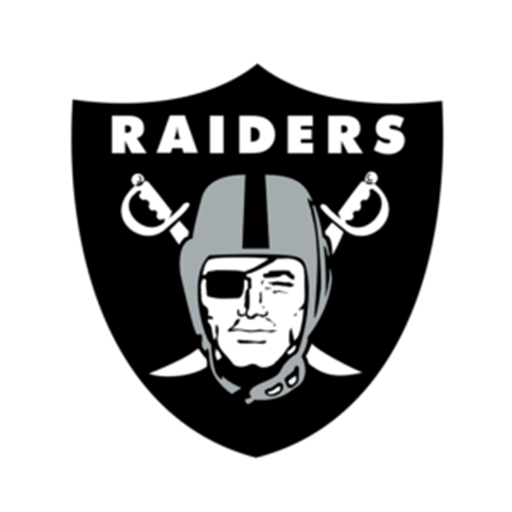

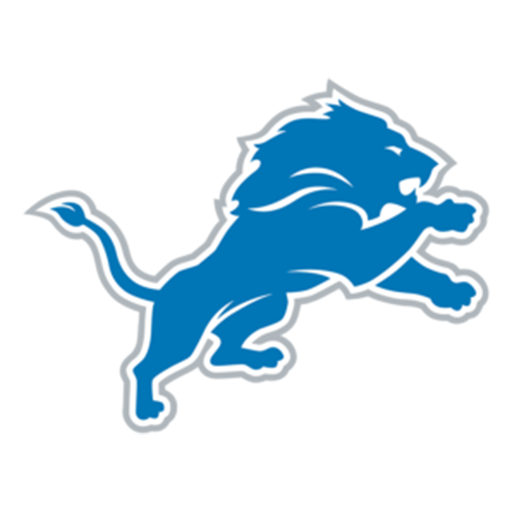



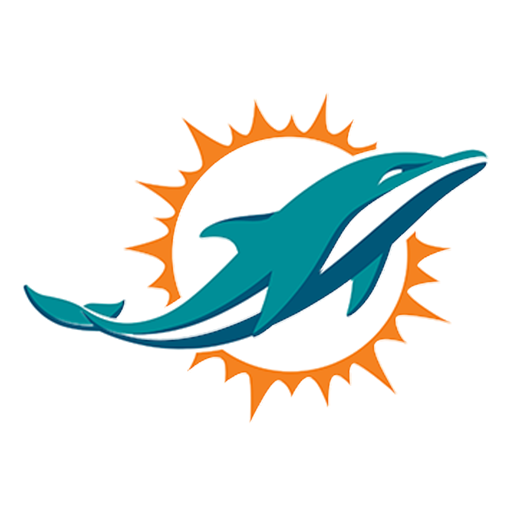





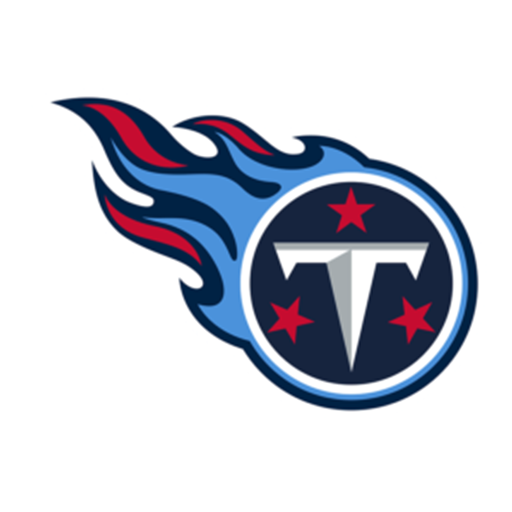





 LIVE
LIVE LIVE
LIVE


